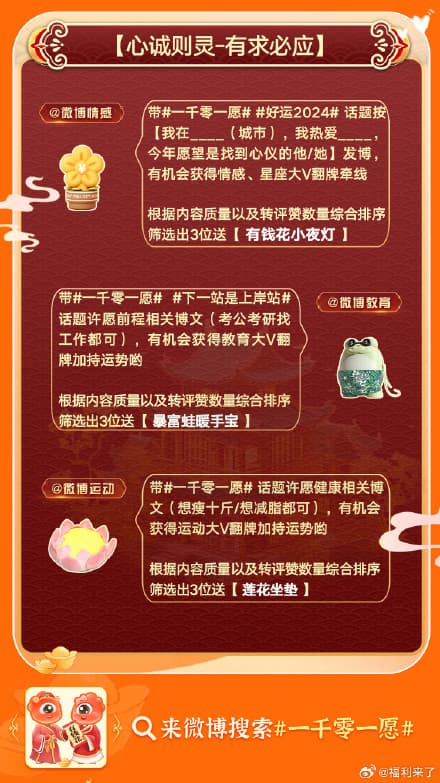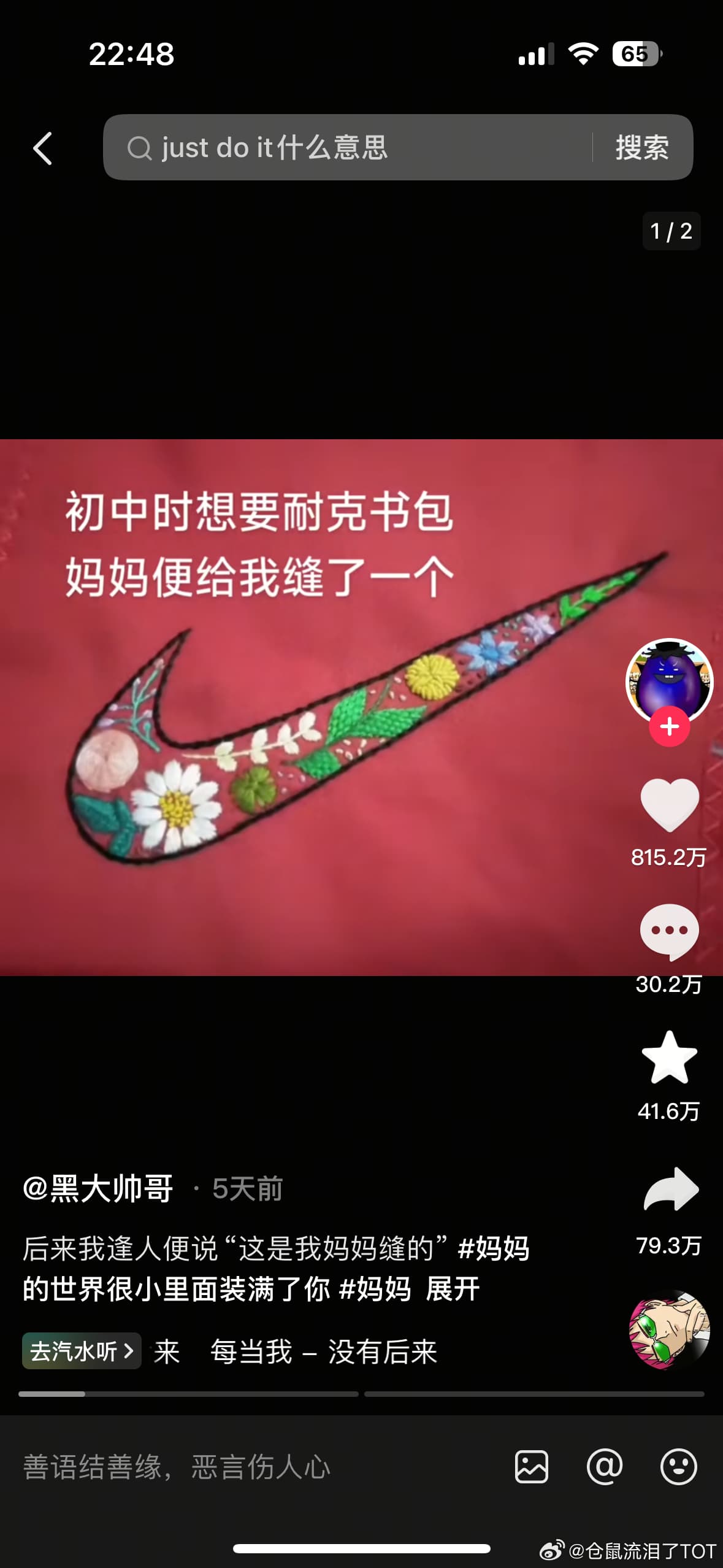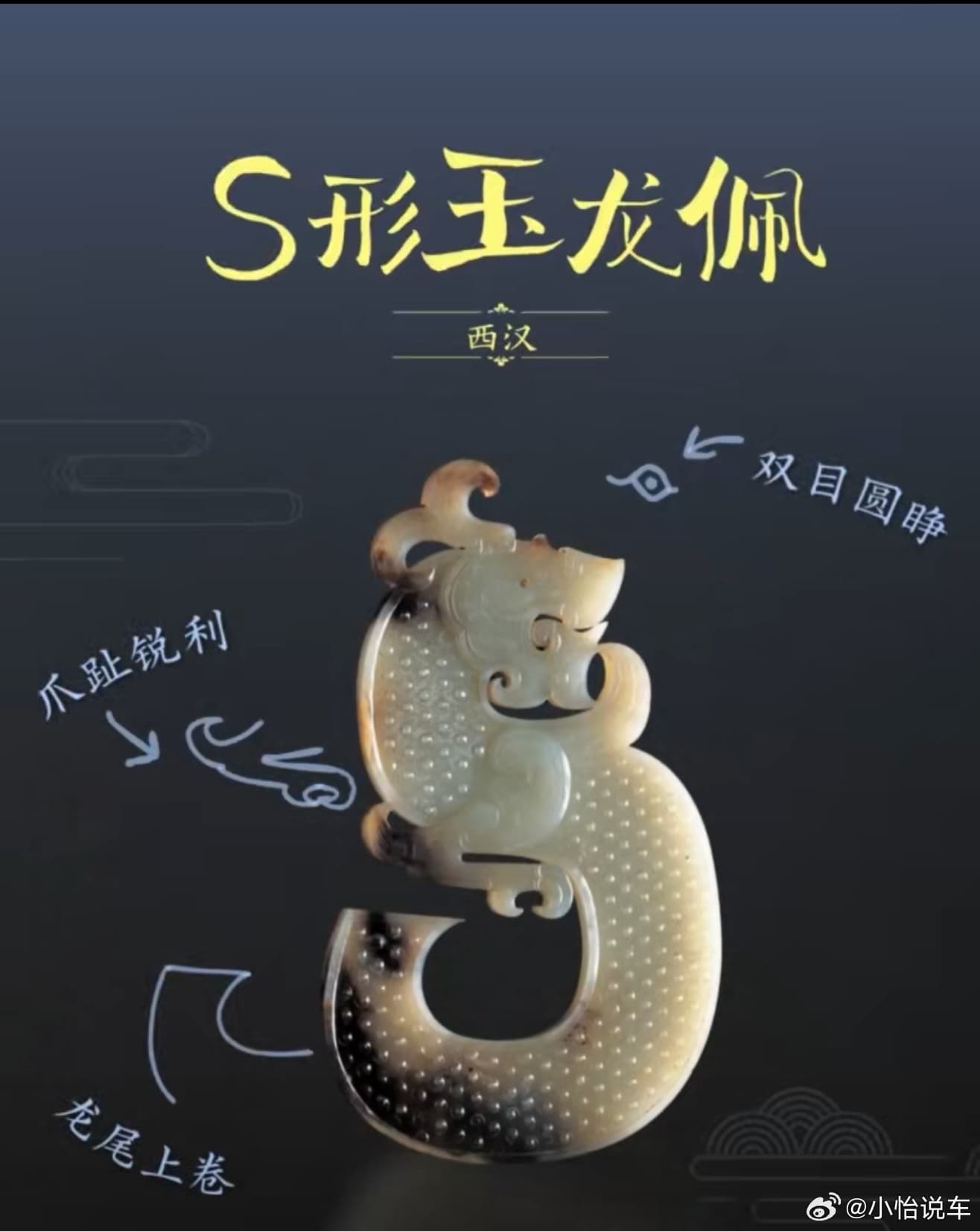A Thousand and One Wishes: The Social Media Phenomenon Taking China by Storm
In recent weeks, social media platforms such as Weibo have been flooded with posts about "#一千零一愿#." This hashtag, which translates to "A Thousand and One Wishes," has gained significant traction among Chinese netizens. A series of tweets from the official account of the "Ni 风有求必应" initiative explains that users can participate by posting their wishes and tags on Weibo, with the possibility of receiving prizes and social media recognition.

4 January 2024
The "Ni 风有求必应" campaign is particularly popular among young people, who are drawn to its themes of love, success, and health. Users are encouraged to share their wishes under the hashtags #一干雪一愿#, #好运2024#, and #下一站是上岸站#, and the most engaging posts will be selected for prizes such as "有钱花小夜灯" and "暴富蛙跃手宝". The campaign also encourages users to tag influential figures in the fields of love, success, and health for the chance of receiving "fortune-boosting" attention.
One of the most popular ways to participate in the "Ni 风有求必应" hashtag is through the use of images. Users have begun sharing their wishes accompanied by photos that symbolize their aspirations. This has led to a variety of creative and visually appealing entries, which have caught the attention of Weibo's netizens.
Many users have expressed their excitement about participating in the "Ni 风有求必应" campaign. Some have admitted that it has given them a sense of hope and encouragement during these trying times. Others have shared their gratitude for the prizes they have received, which has only served to further fuel the popularity of the campaign.
However, the "Ni 风有求必应" hashtag has also received mixed reactions from some netizens. Some have criticized the campaign for being too commercialized, while others argue that it is simply a marketing ploy to gain user engagement. Despite these criticisms, the hashtag continues to trend on Weibo, with users eagerly sharing their wishes and taking part in the campaign.
In conclusion, the "Ni 风有求必应" hashtag has become a significant social media phenomenon in China, offering an avenue for users to share their wishes and aspirations for the new year. While some may criticize the commercialization of the campaign, it is clear that the initiative has resonated with many users who are looking for hope and encouragement during these challenging times. With the potential for prizes and social media recognition, it is likely that the "Ni 風有求必應" campaign will continue to gain popularity in the months to come.
Share this article
Related Articles

Mother’s Hand‑Stitched Nike Backpack Goes Viral, Showcasing Love, Craftsmanship and Brand Authenticity in China
By Trending on Weibo
Culture
15 Sept 2025

China’s “National Treasure Highlights” Campaign Turns Heritage Into Global Soft‑Power and Consumer Brand】
By Trending on Weibo
Culture
13 Sept 2025

Mystery Meme: Unraveling China’s “Dissected 14 People, Crumbled by a Letter” Phenomenon】
By Trending on Weibo
Culture
8 Sept 2025

Chinese Netizens Turn Blood Moon Into Viral “Too Abstract” Meme
By Trending on Weibo
Culture
8 Sept 2025

From Song Dynasty Verse to 2024 Drama: The Enduring Echo of “Rain‑Laden Bells” in Chinese Culture
By Trending on Weibo
Culture
8 Sept 2025